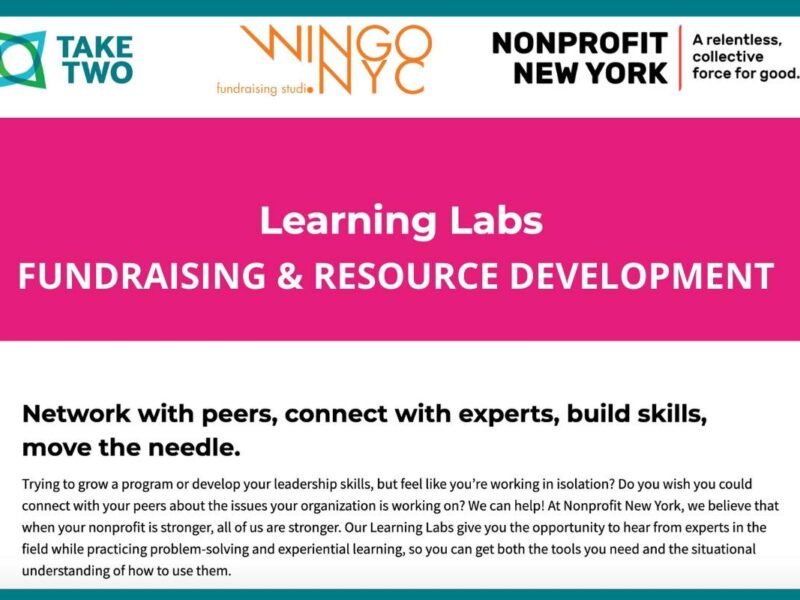
Asking for Money vs. Offering Opportunities – Apples and Oranges?
 Many of TakeTwo’s clients have board and staff members who struggle with fundraising. The very idea of asking for money makes them nervous. When speaking with volunteers or board members, I often hear, “I’ll do anything, except ask for money.” I completely understand this reaction to fundraising – it is a passive position to be in – you are on the receiving end of a situation – powerless – reliant on others for the result you need. As a culture, we are uncomfortable with this power structure. We do not like to ask people for anything; we are viscerally afraid of sounding like we are begging. We are terrified of the answer “no” and how it makes us feel.
Many of TakeTwo’s clients have board and staff members who struggle with fundraising. The very idea of asking for money makes them nervous. When speaking with volunteers or board members, I often hear, “I’ll do anything, except ask for money.” I completely understand this reaction to fundraising – it is a passive position to be in – you are on the receiving end of a situation – powerless – reliant on others for the result you need. As a culture, we are uncomfortable with this power structure. We do not like to ask people for anything; we are viscerally afraid of sounding like we are begging. We are terrified of the answer “no” and how it makes us feel.
Here’s how to do it:
- Organize events – that way your volunteers are not asking for money directly, instead they are asking colleagues, friends, and family members to come to an event with them, or to sponsor or attend a race or walk. The difference is subtle, but in that subtlety, your volunteers can find their comfort zone.
- Create campaigns – offer your support base – your e-mail list, your social media followers, your mailing lists – opportunities to get involved in your work. With a clear, cohesive message and tangible actions your constituent base can take, you can make strides toward your mission while engaging your donors. The actions – or opportunities – you offer can include signing a petition, sharing a story on Facebook, commenting on a news article, and donating to the organization. By creating campaigns, you provide your volunteers and current donors a packaged “ask” they can share with colleagues, friends, and families without putting too much onus – or direct asking – on them. And remember, the more compelling your campaign, the more inspired people will feel to give.
- Offer committees – a great way to get people more involved, committed, and invested in your organization is to provide them with real responsibility. Volunteer committees are a very effective way of doing this. The more a person feels connected to an organization, the more likely they are to attend events, get others to attend events, and essentially, work for your cause. Some committees that have proved very effective include young professional committees, event committees, campaign committees, and advisory committees. Every committee should have real goals and tasks, so that everyone is 100% clear about what they are responsible for and aiming to achieve.
It takes a little practice to get this right – but, it is essentially this – you are fundraising by offering opportunities. Take some time to think about this concept and how it might work for your organization. Then share it with your volunteers, board members, and staff members. You will see, by focusing on offering opportunities, you will ease the anxiety around the big, bad “f” word. And hopefully raise more money at the same time.





